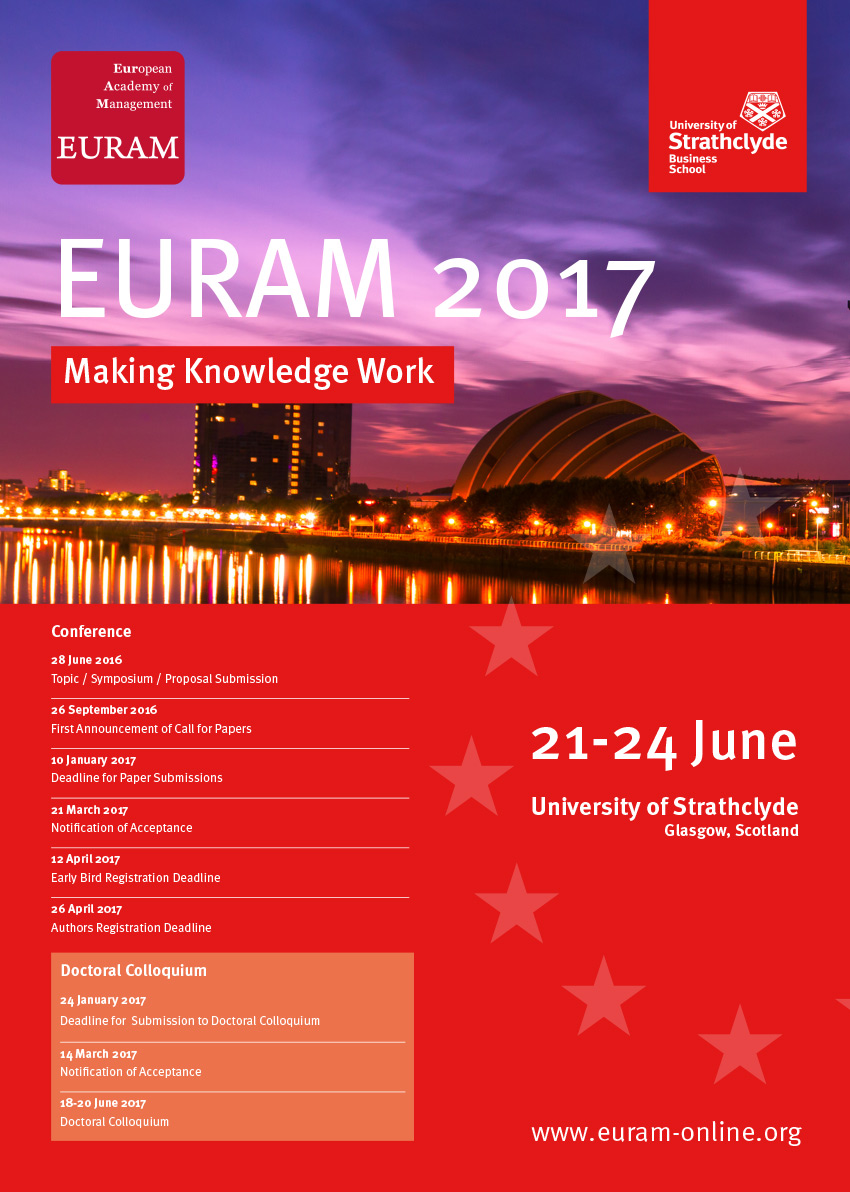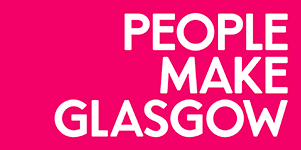Held on 20 June 2017 from 15:00 - to 18:00
See preliminary programme here:
http://www.euramonline.org/programme2017/preliminary-conference-programme.html
If you wish to attend one of the EURAM Labs, you need to register for them separately.
A registration facility is provided as part of the overall conference registration.
See here: http://www.euramonline.org/2016-11-03-10-08-24/fees-registration-2017.html
Lab 1
Title: "Reviewing: Why, What, How, how much and when"
By
Yehuda Baruch and Mustafa Ozbilgin
Short description:
The participants will learn about the role and process of reviewing, and about the surprising ways in which reviewing and related editorial work that may follow can impact them, their career, and their discipline.
Lab 2
Title: “The Realities of Teaching: Creative approaches from the field”
By
Kostas Tomazos, Strathclyde Business school
Short description:
In this session we will go over the transition from PhD student to lecturer/academic and the realities of teaching. First we will trace the ‘heroic’ journey of PhD students and then we will discuss the practicalities of moving behind the desk, so to speak and teaching. It will be a very interactive session where the participants will be asked to complete a few tasks, but it will be fun, I promise’.
Lab 3
Title: “Effective Knowledge Work: Challenges and Experiences”
By
Stefan Gueldenberg, University of Liechtenstein (This email address is being protected from spambots. You need JavaScript enabled to view it.)
Short description:
In today’s economy the strategic importance of organizational learning and the productivity of knowledge work are on a steady rise. Innovation as a result of organizational learning and knowledge generation is more and more becoming the driver for value creation and sustainable success in commercial enterprises. Knowledge-based organizations require specific leadership skills and behaviors to successfully create an environment that supports knowledge workers. In such an organization leadership has not to be seen as an individual position of knowledge and power but instead as a capacity of a human community to shape its future in a self-determined way.
Motivational factors for knowledge workers and manual workers differ considerably. Thus, for example, knowledge workers are increasingly reluctant to work in a company with a classical hierarchy structure. The best minds often leave the company to work independently. Does this mean that our companies are not attractive enough for knowledge workers? Or is it just a wrong style of management and outdated management methods that make more and more knowledge workers seek their future elsewhere? Are there any successful models of promoting career paths as a professional as against a career in management?
This LAB/PDW presents tried and tested methods as well as next practices offering concrete suggestions to analyse and design effective knowledge work. Among others the following questions will be addressed:
- What is knowledge work?
- What are strategies and methods for increasing productivity, quality, effectiveness and value of knowledge work as well as well-being and work satisfaction of knowledge workers?
- Can knowledge workers be managed, and if yes, how?
- How to select the right information and communication technology (ICT) support and make best use of it?
- What are adequate methods for measuring performance of knowledge workers?









